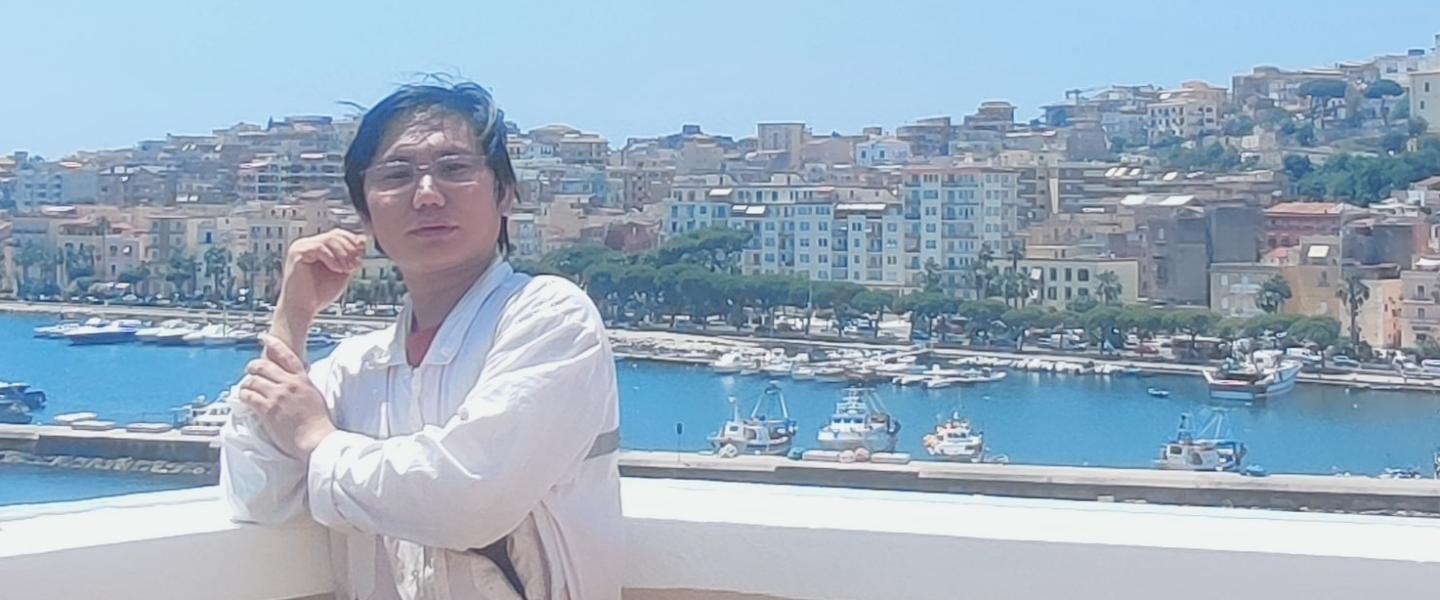This year's Day of the Seafarer theme is "MARPOL at 50 – Our commitment goes on", - a UN initiative to highlight the importance of protecting our world's oceans.
There is no doubt that environmental sustainability is important. But what about human sustainability?
Fear of discrimination and loss of jobs sometimes force LGBTQ+ seafarers to keep their homosexuality a secret when working onboard vessels.
Finding openly gay seafarers working on ships is still quite rare; however, many have embraced their sexual identities and have proved themselves in the industry.
One of them is Filipino seafarer Arstone Aurelio, who considers himself a proud member of the LGBTQ+ community who has gone from hiding his identity to being openly gay.
"I hide my identity as gay and try to be straight onboard," Arstone said; this is how he felt when he first stepped on board in his first role as a Cadet on board a Greek vessel.

Arstone had no ambition to become a seafarer; in fact, he knew very little about the industry; it was his father's dream to see him enrol at a maritime university. So, in 2008, he enrolled at the John B. Lacson Foundation Maritime University.
During his time at maritime university, Arstone says he was already very "self-aware." although it was tough, he could be openly gay, and despite the challenges of being in an all-boy school, he graduated with flying colours.
A Taste of Discrimination
Arstone describes his first month on board as "really difficult." He was trying his hardest to "act straight" but struggled, expressing that it was in his "nature" and felt that it was "obvious" that he was gay.
"One pump man hated everything I did onboard, and it led me to be sent back home after a month. I don't know the probable reason for this. Maybe because maybe I'm gay?"
Arstone says he was never given a reason for being sent home. He acknowledged as a cadet that he needed training just like everyone else, but he was "competent and willing to give everything" to complete the course.
After a month at home, Arstone told Human Rights at Sea that he was allowed to return to the ship only in what he describes as a "demoted" position, and he was sent to work in the ship’s kitchen and galley.
Between unexpectedly learning how to cook, Arstone continued studying and says that many of the crew supported him.
"They taught me well. Fast forward, I became an ordinary seaman, promoted to Able Seaman; after four years of sea service, I was already an Officer."

Better at ignoring it?
In 2023, Arstone refuses to continue hiding his identity and is openly gay and says that he feels accepted; however, it hasn't stopped him from receiving homophobic abuse and slurs, not only on board but also on social media, by those working in the maritime industry.
Very recently, he posted on his Facebook page, and another maritime worker commented, "If gays are onboard", this might explain the bad weather.
Arstone has also witnessed and heard of others being mistreated. One of his friends recently shifted to an offshore role due to discrimination and now suffers from severe anxiety.
As he has progressed through the ranks, Arstone says that he feels things have improved for LGBTQ+ workers but also recognises that maybe he has just gotten "better at ignoring it."
Arstone continues to push the barriers with remarkable resilience and humour and is on track to becoming a marine surveyor in the future.
“It is important for companies in the industry to recognise the value of promoting diversity and inclusion.”, says Arstone. “They need to take steps to ensure that their policies, initiatives, and practices create a safe and accepting environment for everyone.”

All Aboard
Fighting for LGBTQ+ rights in the maritime industry is essential to ensure equal treatment and protection for all individuals regardless of their sexual orientation and gender identity, and it is crucial to create a safe and inclusive work environment where LGBTQ+ individuals can work without fear of discrimination or harassment.
Supporting LGBTQ+ rights in the maritime industry is a step towards a more equitable and just society, and Human Rights at Sea will continue to:
- Highlight the problem and bring public attention to the prevalence and impact of inequality at sea.
- Provide information and guidance for victims of discrimination and violence on how to obtain justice.
- Engage with the maritime sector to understand what they are currently doing to eradicate violence against women from their locations, and we will work with them to improve their standards and practices.
- Expose coastal, port and flag States, companies and individuals who do not protect individuals equally or adequately.
- Lobby for legislation similar to the USA Cruise Passenger Protection Act of 2013 to be implemented internationally.
Contact: If you have any questions, please write to us at enquiries@humanrightsatsea.org
About Sharing. We welcome the use and dissemination of our work with proper accreditation. Please ensure that our Terms of Use are conformed with at all times.
Photo credit: Arstone Aurelio
